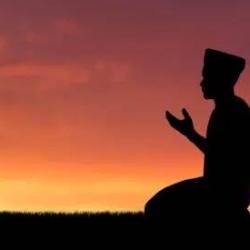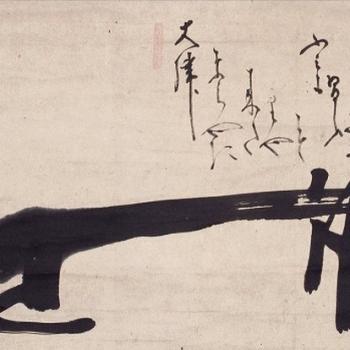It is not the injured pride of a tyrant that we see here, but the pain of a suffering parent. "Ye have abandoned me," He responds. Then we read, "and He could no longer bear to see Israel suffer." ("His soul was grieved for the misery of Israel" in the King James Version.) In the language of scripture, this is God's response to human sin, an underlying sorrow, not anger. Sin is pain, and the intensity of His response to sin is commensurate with the intensity of that pain He knows sin will entail, and in which He has already chosen to share. For He is the God who weeps.
Sin itself is a condition we assume when we place ourselves in opposition to those moral laws that undergird the structure of reality. This condition is naturally one of alienation from God, from those we love, and from "the better angels" of our own nature. Sin is not an arbitrary category God imposes. And it is not synonymous with simple error or misjudgment. This is a truth, like others we are examining, that is best revealed in the searchlight of honest introspection. We know the difference between regret and remorse. We regret giving erroneous directions that get the stranger lost. We feel remorse for the slander deliberately spoken. We regret an action that leads to harm. We feel remorse for choosing that action to inflict harm. Legitimate guilt, the kind we cannot explain away or therapeutically resolve, involves more than bad judgment or human error. The degree of guilt we experience is proportional to the deliberateness with which we cause hurt. Herein lies the clue to the meaning of sin, and the way beyond it.
The pain associated with sin is the natural consequence of our choices; it is not God's retribution upon the wicked. God grieved over Israel's pain for the same reason Job's friends grieved over his: beloved human beings were suffering, and God's perfect compassion made His participation in their pain inescapable. When Enoch saw God weeping, he learned it was humanity's "misery," the fact of their "suffering," that drew forth heaven's tears. God's mourning for rebellious Israel was for their present misery, not an imagined future hell. The gift and power of agency mean we are free to create the conditions of our own existence—which can be a blessing or a curse.
As an inmate of a concentration camp, Corrie Ten Boom heard a commotion, and saw a short distance away a prison guard mercilessly beating a female prisoner. "What can we do for these people?" Corrie whispered. "Show them that love is greater," Betsie replied. In that moment, Corrie realized her sister's focus was on the prison guard, not the victim she was watching. Betsie saw the world through a different lens. She considered the actions of greatest moral gravity to be the ones we originate, not the ones we suffer.
One of Hollywood's more sublime moments occurs in the classic film, Lawrence of Arabia. The British soldier, T. E. Lawrence's only guide across the desert, has been murdered by the Arab Sherif Ali. Ali offers to take the place of the dead Bedouin. Lawrence proudly refuses Ali's offer, insisting he can find his own way with the simple aid of his compass. At this point, an armed Ali snatches his compass, asking, "How if I take it?" Lawrence replies without a pause, "Then you would be a thief."
The unexpected response jolts us because we are not accustomed to consider a death to be less significant than a theft. Unspoken, of course, is Lawrence's real point. Yes, Lawrence would wander helplessly in the desert. He would suffer thirst, fatigue, and exhaustion, followed by a painful, lingering demise. That would be unfortunate, but, as with the prisoner pitied by Corrie ten Boom, his death would be a passing tragedy; by contrast Ali's action, just as the guard's, is a gesture of permanent self-definition. What is always at stake in any decision we make is what that choice turns us into. We may suffer the unfortunate consequences of other peoples' choices. People may honor or abuse us, harm or nourish us. But for the most part, it is our own choices that shape our identity.
Percy Shelley's mythic hero Prometheus makes the same point in the play Prometheus Unbound. Tortured beyond endurance by demonic furies, Prometheus responds to the final vision of pain with which the monsters threaten him, saying, "I weigh not what ye do, but what ye suffer, being evil." This is the tragedy of sin, that we have created for ourselves (as well as for those caught in our path) a condition of pain and suffering. It has not been imposed from without, but is a product of our own choices. The great medieval poet Dante realized this truth hundreds of years ago, when he depicted the most vivid portrait of hell in world literature. No god or demons impel the damned to cross the river Styx to enter into their torments; "they are eager for the river crossing," for their fate is but the natural culmination of their true "desire," expressed through a lifetime of choices.




